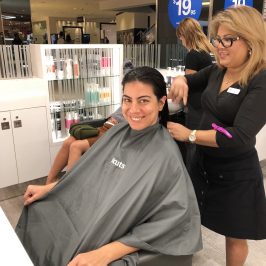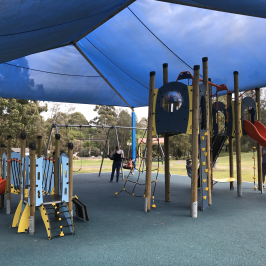Your son is two years old and still isn’t talking. He says a few words but compared to the other children in Mother’s Group you think he is way behind. You remember that his sister could say whole sentences at the same age. Will he catch up? Should you be worried? Should you seek advice? Who should you talk to?
This scenario is common among parents of children who are slow to speak and often parents hesitate to seek advice, assuming that they will “catch up” or “talk in their own time”. Knowing what is “normal” and what is not in speech and language development can help you decide whether you should seek advice or not.
The following information is a guide to typical development. It should be noted that developmental norms apply equally to boys and girls as well as for bilingual children.
By the age of one, your baby should be able to:
- respond to familiar sounds
- understand simple commands, such as “no”
- recognise their own name
- understand the names of familiar objects or people
- babble e.g., mumma, bubba
- say their first word around 12 months of age
- enjoy songs, music and books
- try to make familiar sounds, such as car and animal noises
By the age of two, your toddler should be able to:
- say 200 – 300 words
- say the names of simple body parts, such as nose or tummy
- listen to short simple stories and say the names of pictures
- understand simple sentences, such as “where’s your shoe?”
- talk to themselves or their toys during play
- sing simple songs, such as “Twinkle, twinkle, little star”, or “Baa baa black sheep”
- use some pronouns instead of names, such as “he”, “it”
- try simple sentences, such as “milk all gone”
By the age of three, your child should be able to:
- say 900 -1,000 words
- understand how objects are used – a crayon is something to draw with
- follow directions with two or more parts
- use five -word sentences
- begin to use basic grammar
- enjoy telling stories and asking questions
- have favourite books and television programs
- be understood by familiar adults
By the age of four, your child should be able to:
- understand shape and colour names
- understand some “time” words, such as lunch time, today, winter
- ask who, what and why questions
- use correct grammar with occasional mistakes, such as “I falled down”
- use language when playing with other children
- speak clearly enough to be understood by most people
By the age of five, your child should be able to:
- understand opposites, such as high and low, wet and dry, big and little
- use sentences of about six words with correct grammar
- talk about events that are happening, have happened or might happen
- explain why something happens, such as “Mum’s car stopped because the petrol ran out”
- explain the function of objects, for example, “This scrunchie keeps my hair away”
- follow three directions, for example, “Stand up, get your shoes on and wait by the door”
- say how they feel and tell you their ideas
- become interested in writing, numbers and reading things
- speak clearly enough to be understood by anyone
Speech Pathologists help your child if they are struggling with communication such as expressing themselves, understanding instructions, pronunciation, literacy development or stuttering. Speech therapy can build the confidence children need to reach their potential.
Jen Fraser is an experienced Speech Pathologist based at Hunters Hill Medical Centre in Hunters Hill. Phone 0409 766 075 for an appointment or visit www.speechpathologysolutions.com.au for more information.
THIS IS A SPONSORED ARTICLE














